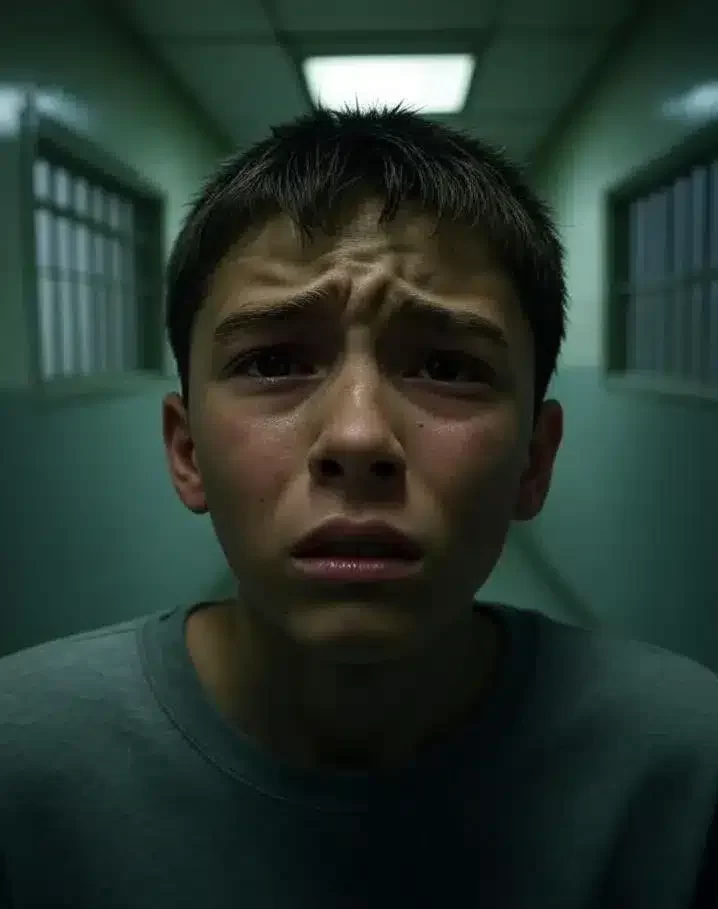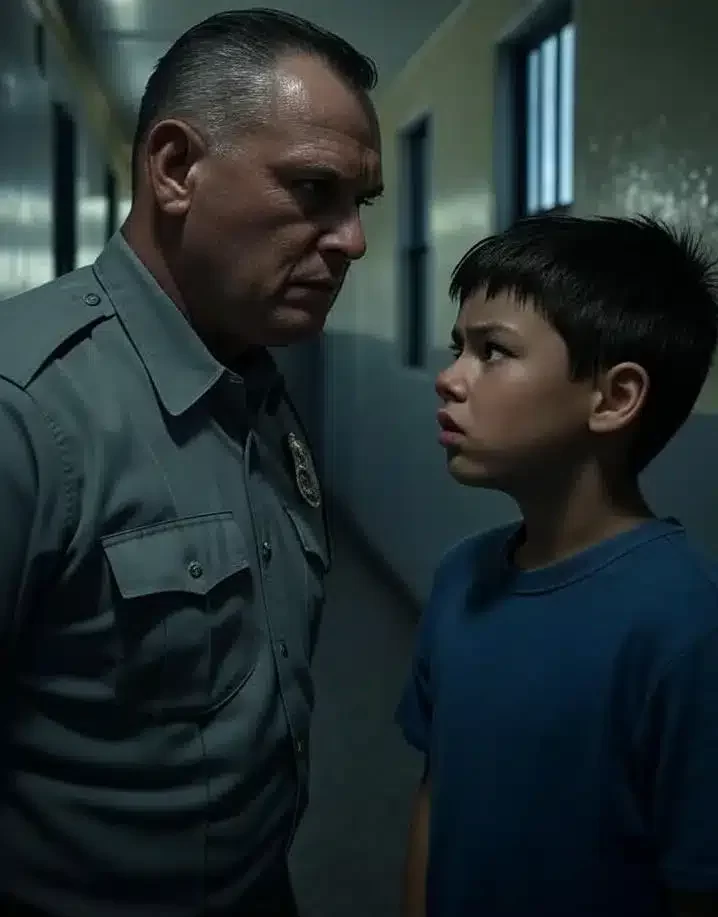- Home
- Sexual Abuse
- Juvenile Detention Abuse
Juvenile Detention Abuse
- February 15, 2026
-
Sarah Miller
- Fact Checked By Our Attorneys
Juvenile detention abuse refers to sexual abuse, physical violence, and emotional neglect that occurs inside youth detention facilities. Children in these centers are especially vulnerable, often facing misconduct from staff, guards, or even peers, with little oversight or protection. Many survivors of childhood sexual abuse in detention experience long-lasting trauma, highlighting serious systemic failures in institutions that are meant to keep them safe.
Begin your path to justice today by requesting a free, confidential case review with experienced attorneys who can guide you through your options.
No Win, No Fee. Let the Best Sex Abuse Attorneys Fight for your Compensation!
Key Takeaways:
Juvenile detention abuse includes sexual abuse, physical violence, and emotional neglect that occurs in youth detention centers, often involving staff, guards, or peers.
Survivors may experience long-term trauma, including PTSD, depression, anxiety, trust issues, and behavioral or physical signs of abuse.
Abuse often occurs in institutions that are supposed to protect children, such as juvenile detention centers, creating systemic failures that can leave survivors feeling unsafe and unheard.
Legal options are available, including civil lawsuits against facilities, staff, and state agencies, as well as potential criminal charges for abusers. Free, confidential case reviews can help survivors take the first step toward justice and compensation.
Find out your eligibility in 2 minutes
If your child has been a victim of sexual abuse, you are not alone. Many families face the same fear, pain, and search for justice. Our team can connect you with experienced child sexual abuse attorneys who understand these sensitive cases, protect your child’s rights, and guide your family through filing a legal claim for the compensation and accountability you deserve.
Begin your free and confidential case review today.

What Is Juvenile Detention Abuse?
This abuse occurs when children in Maryland youth detention centers and other centers experience sexual abuse, physical harm, emotional neglect, or other forms of mistreatment while in custody. This can include alleging sexual abuse and coercion by staff or peers, physical beatings and excessive restraint, and even solitary confinement or psychological abuse.
Many survivors of childhood sexual abuse in juvenile detention facilities face long-term trauma, highlighting systemic failures in institutions designed to protect children. It’s important to distinguish between general staff misconduct and legally actionable abuse only certain violations, such as sexual victimization or severe physical harm, may allow victims to sue lawsuits or pursue child sexual abuse claims.
How Widespread Is Abuse in Juvenile Facilities?
Reports show that widespread abuse has affected thousands of children in juvenile detention facilities across multiple states. Investigations by the DOJ, state officials, and the attorney general’s office including cases in Illinois youth centers, New Jersey Juvenile Detention Centers, San Bernardino JD Abuse, Maryland, and Oregon Youth Authority have revealed systemic failures, neglect, and staff misconduct. Many cases involve sexual misconduct by adult staff members and peer assaults, often under conditions of limited independent oversight.
Underreporting is a major issue young people in detention may fear retaliation, have restricted contact with family services, or lack awareness of their legal rights. This has led to delays in reporting abuse, even when violations are severe, and has prompted federal lawsuits, class actions lawsuits, and new state-level reforms.
Recent data and media reports, including coverage from the Associated Press, show that institutional abuse is a pressing public safety concern. Just like Women Prisoner Abuse, highlighting the need for families, advocates, and the state legislature to push for reforms.
Warning Signs for Families and Advocates
Children and teens in juvenile detention centers may experience abuse that is not immediately visible. Behavioral warning signs can include PTSD, depression, withdrawal, aggression, or sexualized behavior. Physical indicators may involve unexplained injuries, bruises, STIs, or other signs that the child was sexually assaulted or sexually harassed.
Environmental red flags are equally important: restricted communication with family, secrecy surrounding daily routines, or retaliation when complaints are made often signal deeper issues within the facility.
Families, advocates, and legal professionals should remain vigilant and aware of recurring abuse allegations, especially in high-profile facilities such as the MacLaren Youth Correctional Facility. Early recognition of these warning signs can empower child victims to seek justice and initiate action through law firms or district court filings.
Learn more about Signs of Sexual Abuse

Who Can File a Juvenile Detention Abuse Lawsuit?
Survivors of abuse in juvenile detention centers, whether current juvenile inmates or adults who were sexually abused as teens, may have the right to pursue legal action. Parents or guardians can file on behalf of child victims currently in custody, and adults who experienced abuse in recent years may also qualify depending on the Child Victims sexual Acts or applicable statute of limitations.
Cases can be filed in federal court or district court, and survivors can work with law firms, including other law firms or county-appointed counsel, to ensure county officials, state departments, and staff members are held accountable. Abuse allegations that were previously ignored or resulted in failed investigations can now support new lawsuits or new federal lawsuits, especially when institutional negligence or misconduct by criminally charged staff members is involved.
Survivors seeking to take action can start by working with an attorney to file a Juvenile Detention Center Lawsuit, helping to hold departments and facilities responsible while pursuing compensation for the trauma endured in custody.
FREE!
Find out if you're eligible and may be eligible for compensation.
Get your Free Case Review and Maximize You Payout With the Help From Legal Claim Assistant.
Who May Be Held Liable?
In cases of juvenile detention abuse, multiple parties may be held responsible. Individual abusers can include staff members, guards, administrators, or contractors who engage in misconduct or sexually assault minors. Facility operators, such as state juvenile justice agencies or private contractors, may also be liable for failing to implement proper oversight or protect child victims.
Additionally, systemic failures by state agencies, probation departments, or the Illinois Department can contribute to abuse and may be cited in legal action. Notable cases of Illinois juvenile detention facility sexual abuse demonstrate that county officials and institutions can face accountability when abuse happened under their watch.
Compensation for Juvenile Detention Abuse Survivors
Survivors of abuse in juvenile detention centers may be entitled to various forms of compensation depending on the severity and circumstances of the abuse. This can include medical and mental health care, PTSD and trauma therapy, and support for educational disruption caused by time in custody.
Survivors may also pursue damages for pain, suffering, and punitive damages, especially in cases where facilities forced secrecy or covered up misconduct. High-profile cases and recent news reports show that settlements can reach into the millions when systemic abuse is proven.
Survivors seeking to understand their legal options and pursue restitution can consult a Sexual Abuse Lawsuit attorney to guide them through the process.
Statute of Limitations in Juvenile Detention Abuse Cases
The statute of limitations sets the deadline for filing a juvenile detention abuse claim, but in many cases, this period can be tolled (paused) if the abuse occurred while the survivor was confined. Some states, including Illinois and Maryland, have revival windows or special provisions under laws like the Child Victims Act, allowing survivors of child sexual abuse to pursue child sexual abuse claims even years after the abuse happens.
Because deadlines vary by state and can be affected by the age of the survivor at the time of abuse, it’s critical to seek legal review promptly to ensure you do not miss your opportunity to file lawsuits and hold juvenile justice facilities accountable.
“No child should suffer in silence behind bars—abuse in juvenile detention is a failure of justice, not just discipline”
How a Juvenile Detention Abuse Lawyer Builds the Case
Experienced attorneys help survivors of juvenile detention abuse gather the evidence needed to file lawsuits and pursue justice. This may include medical examinations, grievance records, incident reports, staff files, and witness testimony, as well as DOJ and state investigation reports. Lawyers also work to overcome the secrecy common in detention centers through subpoenas, discovery, and whistleblower accounts, ensuring that the full scope of abuse and institutional misconduct is documented.
Survivors can find specialized legal support through cases such as the Maryland Juvenile Detention Center Lawsuit, the Illinois Juvenile Detention Center Lawsuit, and the New Hampshire Youth Detention Center Abuse, which illustrate how law firms pursue accountability for child victims and systemic failures in juvenile detention facilities.
FREE!
Find out if you're eligible and may be eligible for compensation.
Get your Free Case Review and Maximize You Payout With the Help From Legal Claim Assistant.
Step-by-Step: Filing a Juvenile Detention Abuse Claim
Filing a juvenile detention abuse claim can feel overwhelming, but taking it step by step helps survivors seek justice while maintaining safety and confidentiality:
- Confidential case review with an attorney: Speak with experienced law firms to evaluate your eligibility under laws like the Child Victims Act.
- Evidence collection and survivor statement: Document medical records, incident reports, witness testimony, and any grievances filed during your time in juvenile detention centers.
- Identifying defendants: Attorneys determine liability, which may include staff members, facility operators, or state agencies.
- Filing the lawsuit: Survivors can file lawsuits individually, join a class action, or pursue federal lawsuits depending on the circumstances.
- Negotiation, settlement, or trial: Attorneys work to achieve compensation for medical care, therapy, pain and suffering, and other damages related to child sexual abuse or institutional abuse.
Taking these steps with a knowledgeable attorney ensures survivors’ rights are protected and helps hold responsible parties accountable.
Prevention and Reform Efforts
High-profile juvenile detention abuse cases have revealed serious oversight gaps in youth detention facilities. The Department of Justice and other agencies recommend reforms including staff training, the use of body cameras, and independent monitoring to protect children from abuse.
Families and advocates also play an important role by staying alert to warning signs, maintaining open communication with youth in juvenile detention, and reporting suspected abuse to state officials or law enforcement.
These efforts aim to improve juvenile justice systems, protect public safety, and prevent sexual victimization in detention centers while empowering survivors and their families to sue new federal lawsuits and seek justice when abuse occurs.
FAQs About Sexual Abuse And Detention center
Can I sue if the abuser was another detainee?
Yes. Survivors of abuse by other juveniles in detention centers may have legal options, especially if facility staff or administrators failed to prevent or respond to the abuse.
What if the abuse took place years ago?
Some states have special provisions under the Child Victims Act or revival windows that allow survivors to file lawsuits even years after the abuse occurred.
Can I stay anonymous in a lawsuit?
In many cases, attorneys can protect your identity during legal proceedings to ensure safety and privacy while pursuing justice.
What evidence do I need?
Medical records, incident reports, grievance filings, witness statements, staff files, and any documentation from state or federal investigations can strengthen your case.
How much are settlements worth?
Compensation varies depending on the severity of abuse and systemic failures. Settlements can include medical care, therapy, pain and suffering, and in some cases, reach into the millions.
How Legal Claim Assistant Helps Survivors
Legal Claim Assistant provides survivors of juvenile detention abuse with a free and confidential eligibility review. We help check statute of limitations deadlines and connect survivors to vetted attorneys nationwide who specialize in juvenile detention abuse claims.
Our experienced team supports survivors in filing Juvenile Detention Center Lawsuits, including cases in Cook County and other jurisdictions, ensuring your legal rights are protected.
You Deserve Justice. Let Us Help.
Speak with a trusted sexual abuse attorney who will stand by your side, protect your privacy, and fight for the compensation you deserve.
No Win, No Fee. Let the Best Sex Abuse Attorneys Fight for your Compensation!
Under 1 Minute
100% Free
Expert-Reviewed
Private & Secure
© 2025 Legal Claim Assistant. All Rights Reserved.
Terms of Service | Privacy Policy | Contact Us | Marketing Partners
Related Article

How a Drunk Driving Accident Attorney Can Help After a Crash

